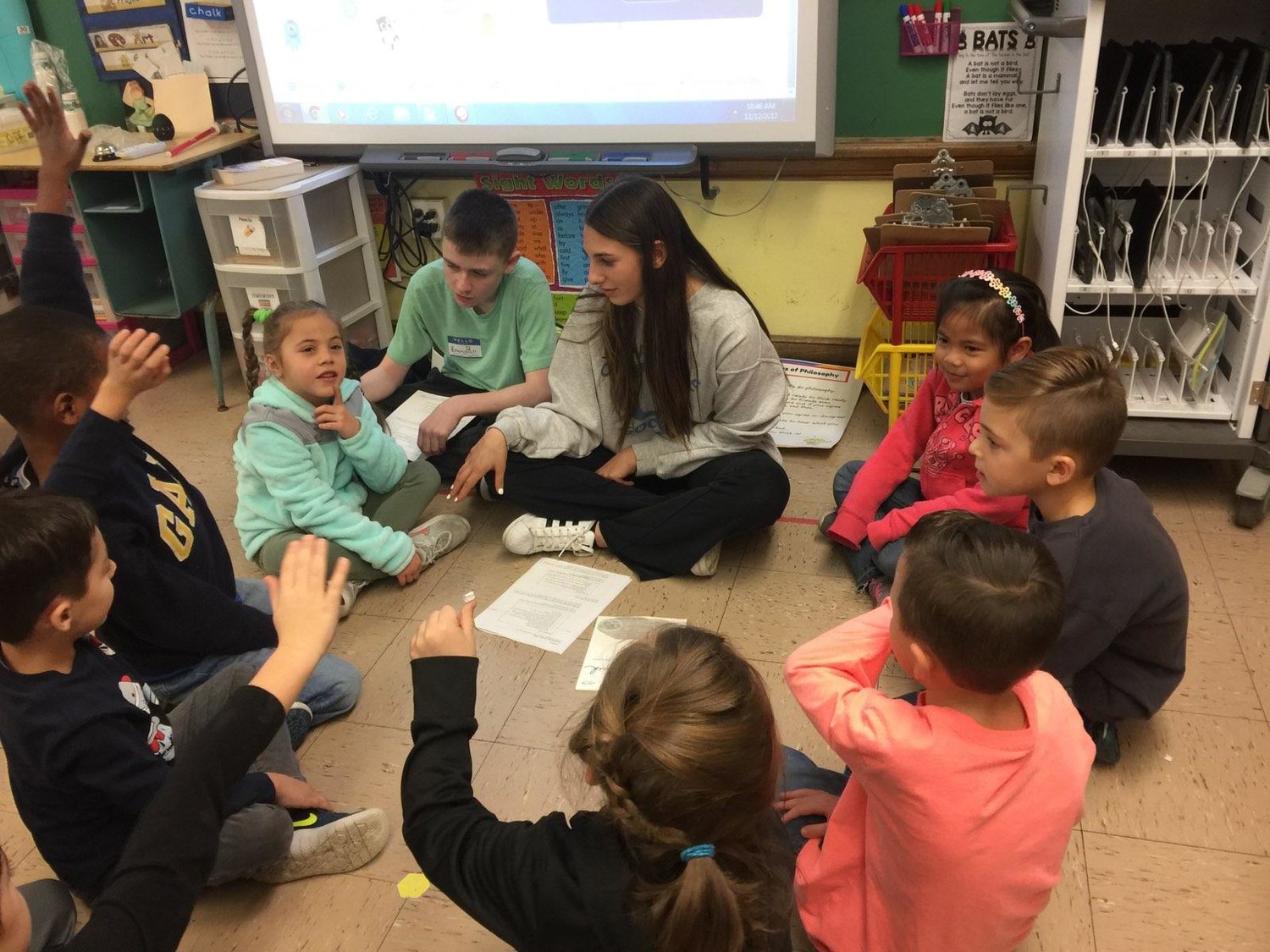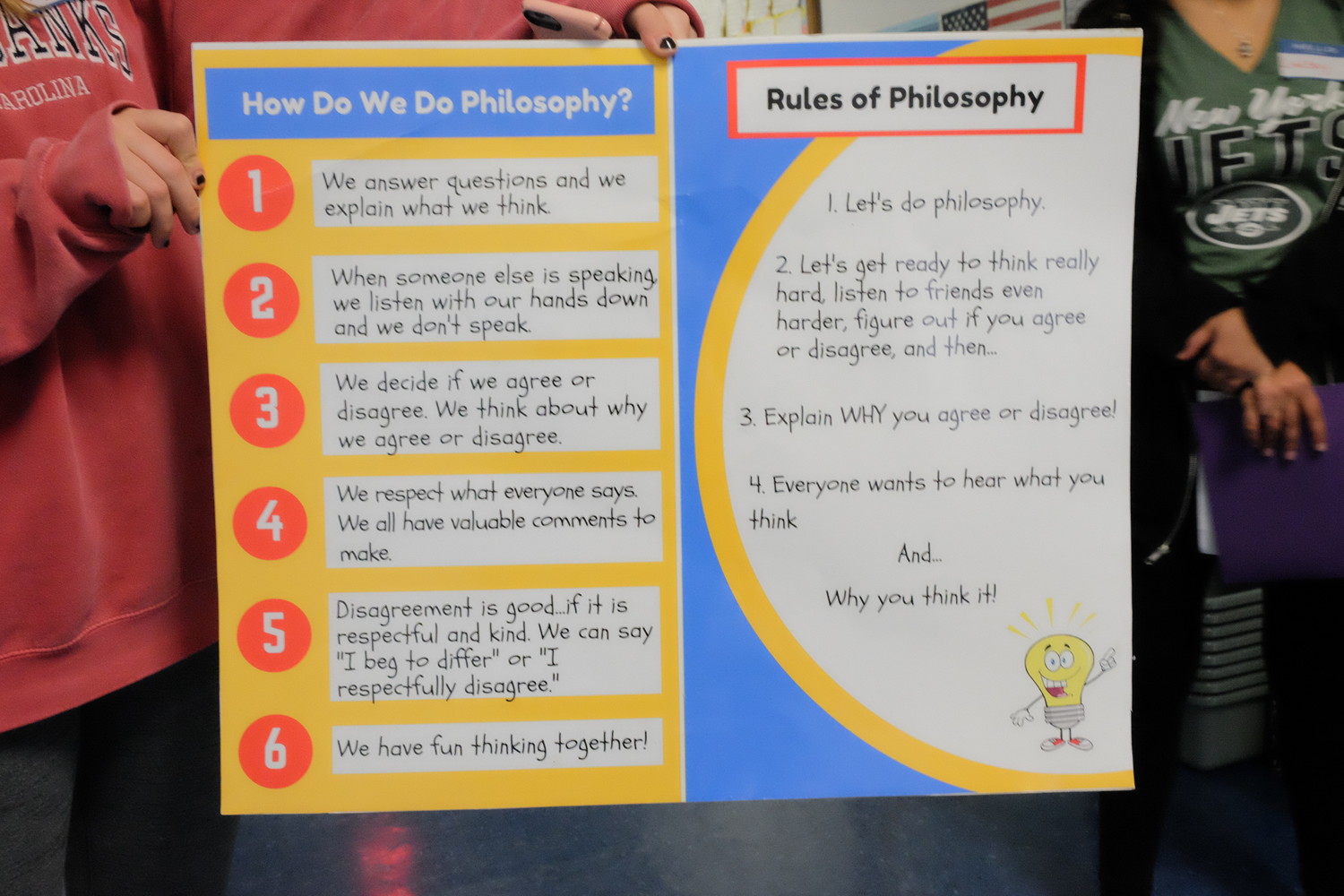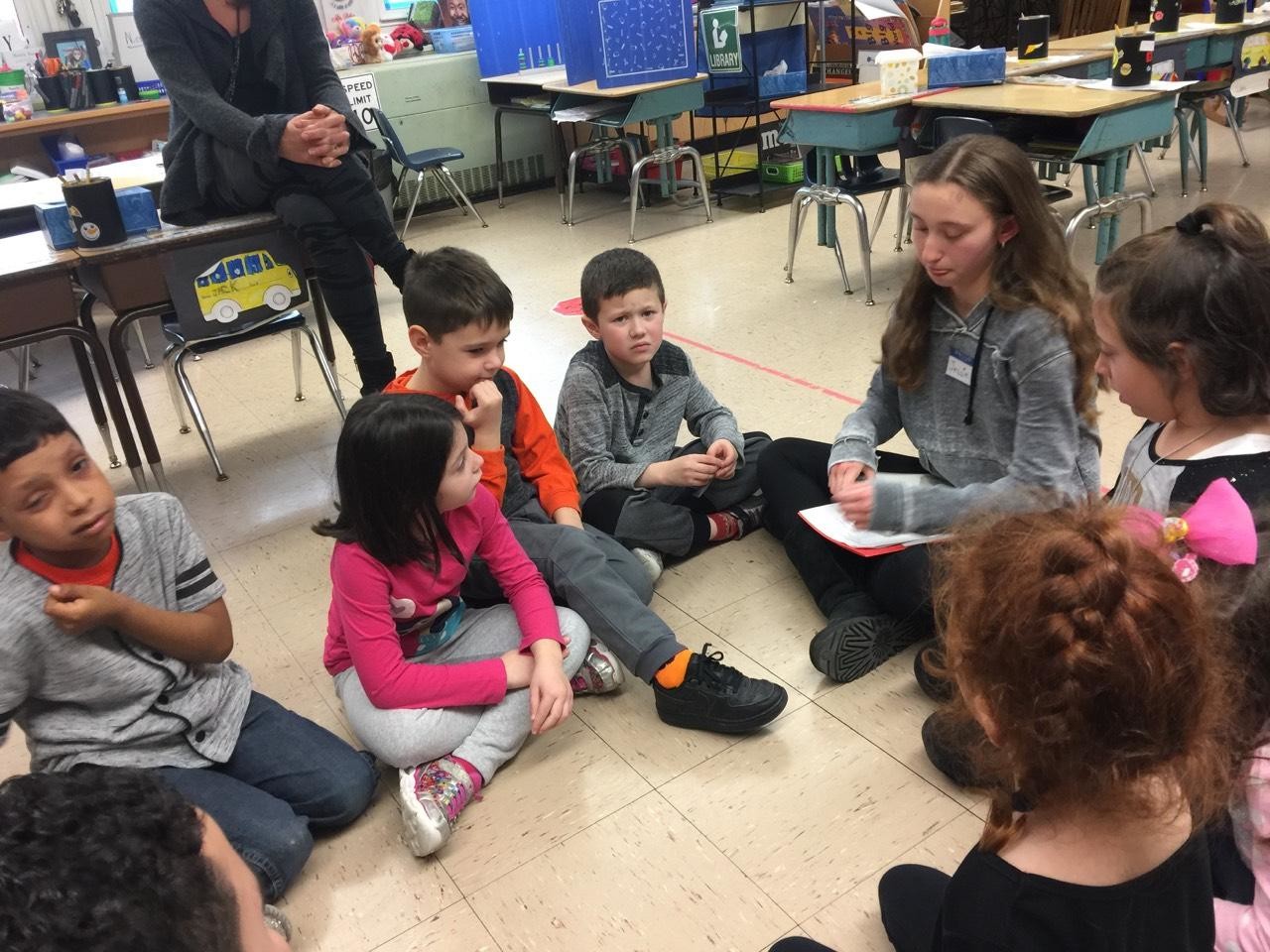Oceanside first graders learn ‘Big Ideas’
And high schoolers learn how to teach it to them
Between calling their high school facilitator, Zach, 16, silly nicknames like “Mr. Robot,” and “booger-man,” first graders at Oceanside’s School No. 3 wrestled with questions about the value of labor that have occupied economists through the ages.
The questions focused on a picture book that had just been read to them about a mouse named Fredrick. Through Fredrick’s story, the children — using phrases like “I respectfully disagree,” — very politely debated the merits of their arguments.
The program, Big Ideas for Little Kids, began when Mitch Bickman, the district’s K-12 social studies director, wanted to teach his own three year old to think philosophically. Bickman said that he along with Laura Trongard, a social studies teacher with a three year old of her own, “basically piloted this program on our own children.”
“Picture books are this beautiful starting point to ask the bigger questions that they’ll wrestle with later in life,” Bickman said. The “Giving Tree,” he said was an example of a children’s book that aspires to talk to young children about complex issues like economics, scarcity and our relationship to the environment.
Big Ideas for Little Kids is about bestowing a framework, he said, that allows kids “to question their world.” He added, “We want them to carry that framework through as they build on the content with grade level.”
The exercise is also a good way to build community between high schoolers and their younger cohorts. “Some of the ‘High School Friends,’ as we call them, reported that sometimes they see one of their little buddies out in the community and they run up and give them a high five or a hug.”
It also helps the high schoolers better understand the work their teachers do. “They don’t usually get to see the back-end of teaching,” Bickman said, “the lesson planning, the time management, refocusing distracted kids [and] making sure everyone’s involved. Once they get to see what it’s like, they have more of a healthy respect for their teachers.”
Bickman encouraged parents to go online and try the curriculum at home with their kids. “You don’t have to be a philosopher or know anything about philosophy,” he said.
The Big Ideas for Little Kids curriculum is available online, for free, at teachingchildrenphilosophy.org

 47.0°,
Mostly Cloudy
47.0°,
Mostly Cloudy 









